Supreme Court’s Recent Non-Action on Patent-Eligible Subject Matter
March 2, 2020
By: James M. Smith
The year 2020 kicked off with the United States Supreme Court issuing orders dismissing several petitions for review of patent-eligible subject matter. Although Federal Circuit judges and critics had hoped for the Supreme Court to clarify the law, the Supreme Court’s dismissals indicate that it is satisfied with the Alice/Mayo test for now. With the Federal Circuit decisions left to stand, patenting of diagnostic techniques will continue to be limited by Alice/Mayo while patenting methods of treatment should continue to be less affected. But with the continued development of the law and practices, practitioners may even be able to successfully claim diagnostic techniques under Alice/Mayo.
The Alice/Mayo test, formulated by the Supreme Court, proceeds in two parts. First, a court must examine whether a claim is directed to a law of nature, abstract idea, or natural phenomena. Second, if the answer to the first inquiry is yes, a court must determine whether the limitations of the challenged claim go beyond the ineligible subject matter so as to transform the nature of the claim into a patent-eligible application. Alice, 573 U.S. at 217 (2014). Further, a claim directed to patent-ineligible subject matter may be patentable if the claim adds something beyond well-understood, routine, conventional activity to the ineligible concept. Mayo, 566 U.S. at 79-80 (2012). Patent owners have criticized the Alice/Mayo test as its application has resulted in the invalidation of patents on grounds of ineligibility. Patent owners have asserted that the Supreme Court’s holdings gave rise to vague guidelines to be used by courts in determining what constitutes a natural law or abstract idea. While the issue of patent-eligible subject matter is significant to those prosecuting and enforcing patents, the law is continuing to develop without action by the Supreme Court and Congress.
Included in the recent decisions that stand are one that found a diagnostic method ineligible and thus invalid, and one that found a treatment method eligible and thus valid.
In the Federal Circuit decision of Athena v. Mayo, a three-judge panel found the claims in the patent at issue to recite “a natural law and conventional means for detecting it,” holding the patent to be invalid due to ineligibility. The panel noted that “the specification describes the claimed concrete steps for observing the natural law as conventional.” (Athena Diagnostics, Inc. v. Mayo Collaborative Services, LLC, Fed. Cir. 2019). In denying Athena’s petition for rehearing en banc, all 12 Federal Circuit judges appeared to share a sentiment that Athena’s claims should be patent-eligible, yet the majority held that they were invalid under the Alice/Mayo test. Judge Moore stated, “[t]his is not a case in which the judges of this court disagree over whether diagnostic claims, like those at issue in Athena, should be eligible for patent protection. They should. The only difference among us is whether the Supreme Court’s Mayo decision requires this outcome.”
In another Federal Circuit decision of Vanda Pharmaceuticals v. West-Ward Pharmaceuticals, a three-judge panel found that Vanda’s patent was valid as the claims were “directed to a specific method of treatment for specific patients using a specific compound at specific doses to achieve a specific outcome.” (Vanda Pharmaceuticals v. West-Ward Pharmaceuticals, Fed. Cir. 2018). The Federal Circuit denied West-Ward’s petition for rehearing en banc.
Some argue that the Supreme Court’s orders are detrimental to innovation in the field of medical diagnostics, for example, and that fewer people will seek patents in those technologies because of an increased chance of invalidity due to ineligibility. There may be disappointment that the Supreme Court has not clarified the Alice/Mayo test and low expectations that Congress will be able to address subject matter eligibility concerns. But the Supreme Court’s orders may not be as egregious as critics make it seem, as any new Supreme Court decision might work against their interests. Further, invalidity due to ineligibility has recently declined, and the Federal Circuit has begun developing its own framework in determining patent-eligible subject matter under Alice/Mayo. In addition, the invalid Athena patent issued in 2007, and practitioners will likely develop new drafting techniques to overcome subject matter eligibility issues moving forward. Practitioners prosecuting patent applications at the Patent Office after Alice/Mayo will be mindful to draft applications reciting sufficiently more than well-understood, routine, conventional activity with respect to a law of nature, an abstract idea or a natural phenomenon. More recently issued patents prosecuted at the Patent Office with the Alice/Mayo test in mind are now becoming available for enforcement, and such patents are more likely to remain valid under the test.




